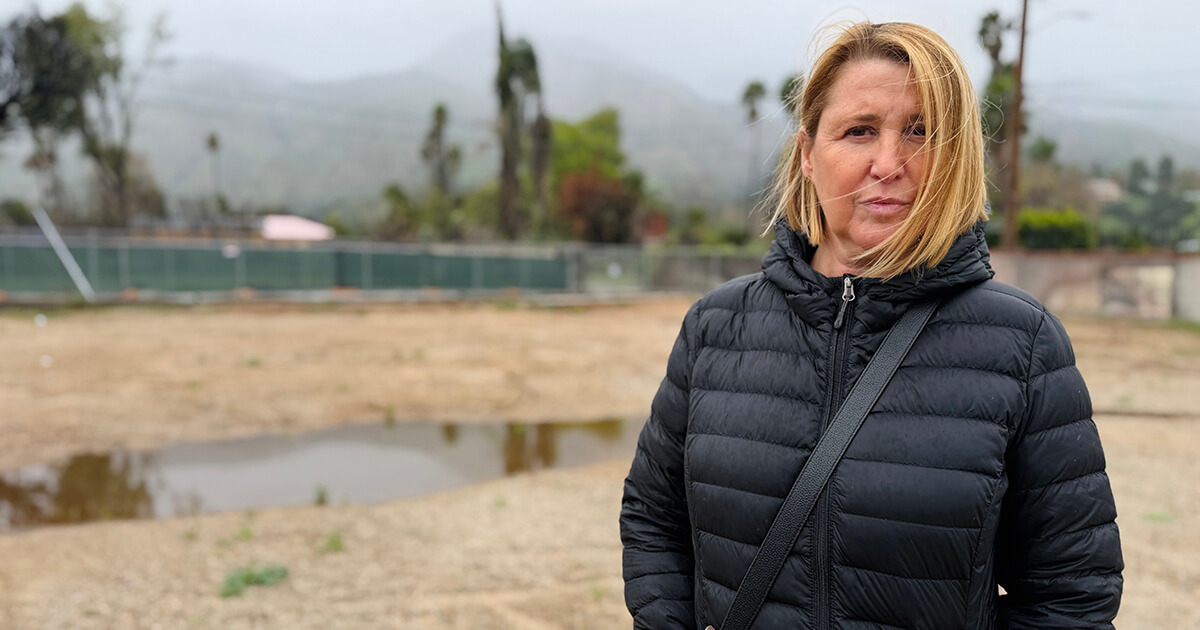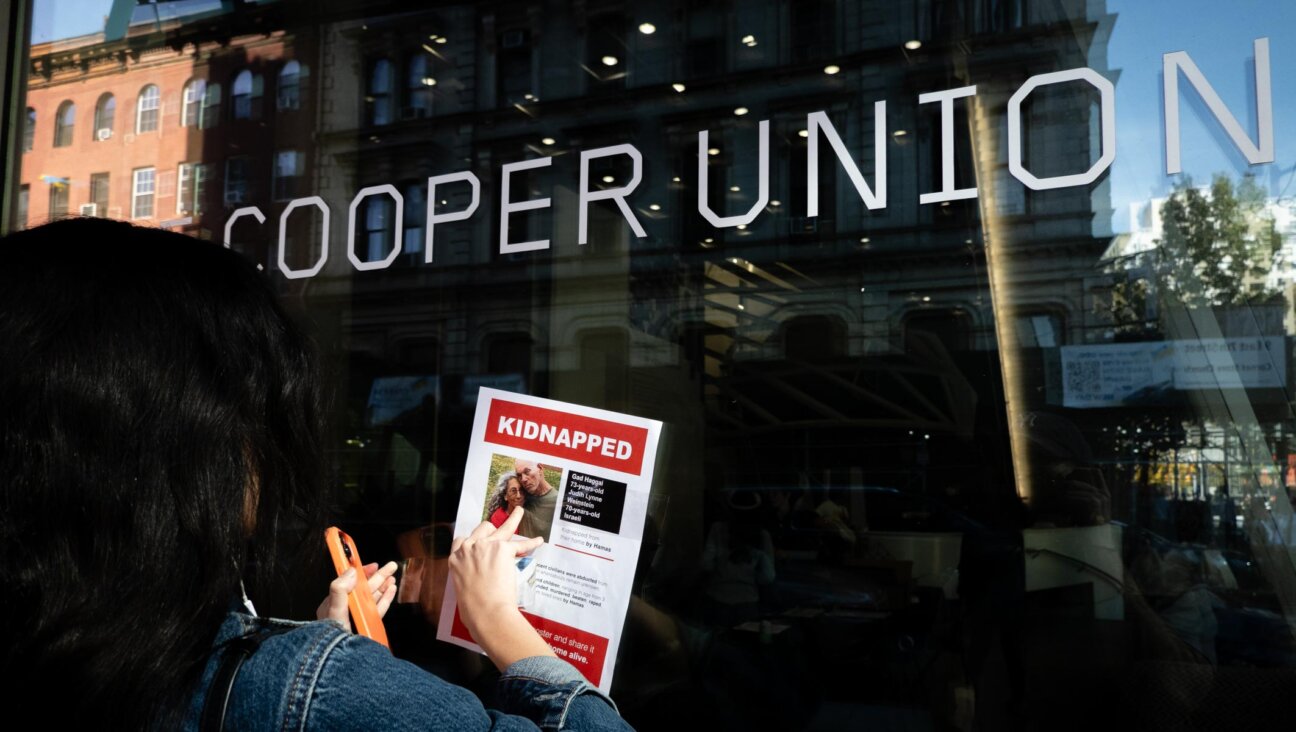Cincinnati Community Helps Paint Ohio Red
CINCINNATI — On Tuesday, none of the 80 rabbinical students at Hebrew Union College offered to lead morning services. Instead of starting their day at the school’s sanctuary, where one of the stained glass windows depicts the Ten Commandments over the American flag, most found themselves at campaign hot spots.
By the time the polls opened in Cincinnati, Jonathan Greenberg, a fourth-year rabbinical student at the college, already was in place at his electoral ward’s command house, dispatching 18 fellow seminarians to venture out into the pressing gray rain to knock on doors, hand out flyers, and call likely voters for the Kerry campaign. Another student, Charlie Cytron-Walker, was standing outside a nearby polling place in Price Hill, a low-income neighborhood, asking voters to support the Democrats. Others were standing in long lines, waiting to cast their ballots.
Cincinnati is the birthplace of Reform Judaism in America, the most liberal of the country’s major Jewish denominations, but these fledgling rabbis were fighting an uphill battle in their own backyard. The city is located in southwestern Hamilton County, the only urban area in Ohio to back Bush in 2000. Although Jewish voters in Cincinnati vote overwhelmingly democratic, they are generally more conservative than those living in Cleveland or Columbus — a fact not lost on the Bush campaign.
“People might find it counterintuitive that the Republicans would spend resources targeting Jews, given that the Jewish community still votes disproportionately for Democrats,” said Brian Stoller, a rabbinical student at Hebrew Union College and Bush supporter. “But what we’re talking about is picking votes at the margin, and it’s precisely because the Jewish community votes in such high numbers that it was important for the campaigns on both sides to target them.”
Although students did not campaign under the banner of HUC — which is a non-partisan, non-profit organization — the election clearly motivated a large percentage of the student body.
“In New York, people don’t have to think about the campaign, but here, everyone thinks about it, all the time,” Cytron-Walker said. “The fact that we’re in a battleground state really makes a difference, because I feel like my presence here really matters.”
In an average election, both parties say, the Jewish vote in Ohio will break roughly 80% Democratic and 20% Republican. Jews account for only about 2% of the electorate in Ohio, far fewer than in Florida, another of this year’s swing states, and Cincinnati’s Jewish community clocks in at only about 20,000. But according to some observers, the community’s influence is greater than its numbers.
“People court Jewish support because this is a community that cares,” said Ronna Greff Schneider, a law professor at the University of Cincinnati who went to law school with Kerry, “and that acts on what it cares about.”
Indeed, while both candidates might have been glad to have had extra help getting out the vote in an election race that focused from the start on a few apocryphal undecided voters in a handful of battleground states, including Ohio, neither campaign could take its Jewish votes for granted.
Earlier this year, the American Jewish Congress released a survey showing an increase in Jewish support for George W. Bush, to 24% of those surveyed, over the 19% of the Jewish vote that Bush won in 2000. To Republicans, the survey results indicated an opportunity to shave off votes from the Democratic totals, for the first time since Ronald Reagan ran for re-election in 1984, when some 40% of Jews supported him; to Democrats, the survey was a blinking light demanding concentrated attention to Jewish concerns, particularly on Israel policy.
“The Jewish community is one that has always voted Democratic, and I think this year people were taken aback that the campaign has had to reach Jews as a constituency,” said Lisa Swirsky, a volunteer for the Kerry campaign who coordinated the Jewish community outreach efforts in Ohio. “Democratic candidates haven’t had to organize the Jewish vote in a very long time.”
The effort included sending Jewish volunteers from around the country into Ohio. Hadar Susskind, who served in the Israeli army, spent a week in Cincinnati helping the Kerry campaign reach Hebrew-speaking Orthodox and Hasidic voters, as well as coordinating broader efforts in the community to prevent Democratic Jewish voters from moving across the aisle.
“Usually you need to be a local to speak the language — so to say — but not this time,” Susskind said. “If I call someone, and I say I’m Israeli, if I speak to them in Hebrew, if I tell them I was in the army — it doesn’t make me any more qualified to talk about Israel’s security than anyone else, but at least people didn’t hang up.”
The Kerry campaign also organized a rally in Cincinnati in late October attended by Cameron Kerry, who converted to Judaism when he was married two decades ago. The campaign produced buttons that read “Kerry-Edwards” in Hebrew, as well as T-shirts that read “John Kerry for President.”
The Bush campaign organized an appearance in Cincinnati late in the campaign by former White House Press Secretary Ari Fleischer, as well as specific events for the Russian Jewish community, and also campaigned on the strength of the administration’s Israel policies.
“We really don’t look at it in terms of swinging the vote,” said Michael Lebovitz, the Bush campaign’s outreach coordinator. “These are voters who support the president’s policies.”
“This is the land of Taft — historically, if you want to get ahead in public life, you became a Republican,” said Barbara Glueck, the executive director of the local American Jewish Committee chapter. “However they fall everywhere else, there will always be a reliable Republican Jewish vote in Cincinnati.”















